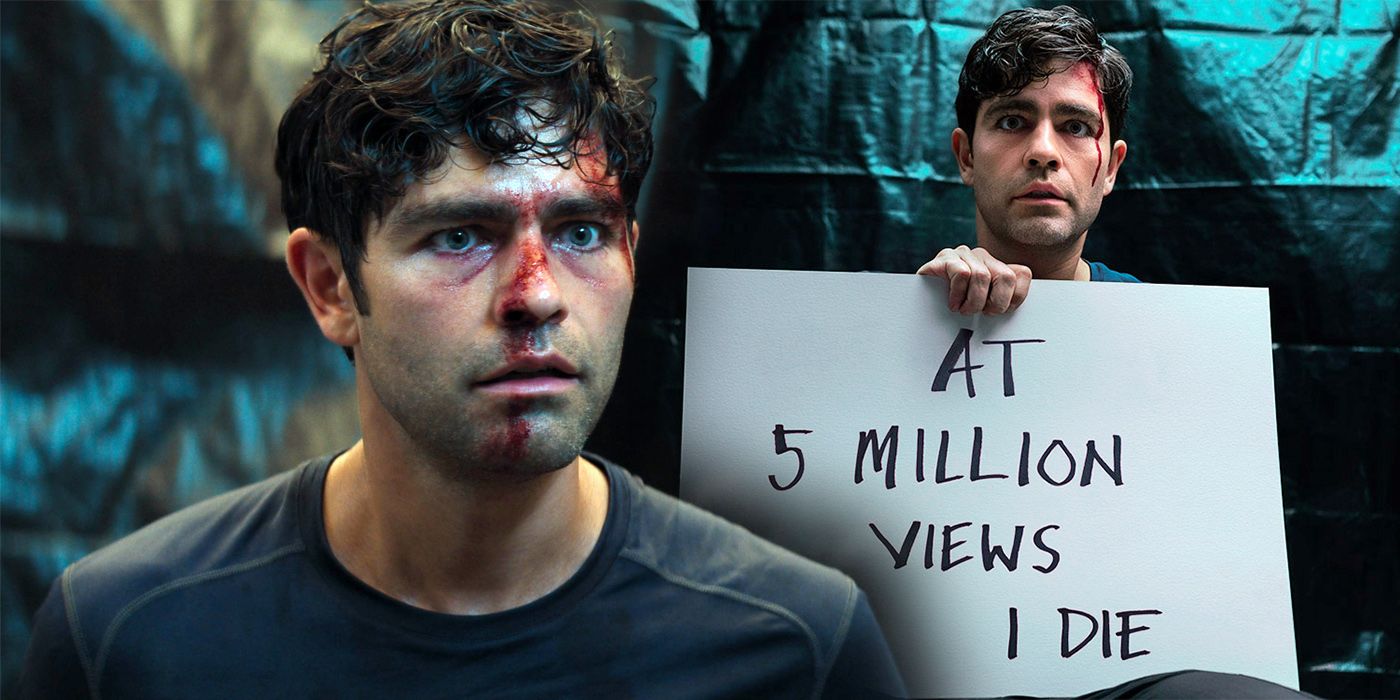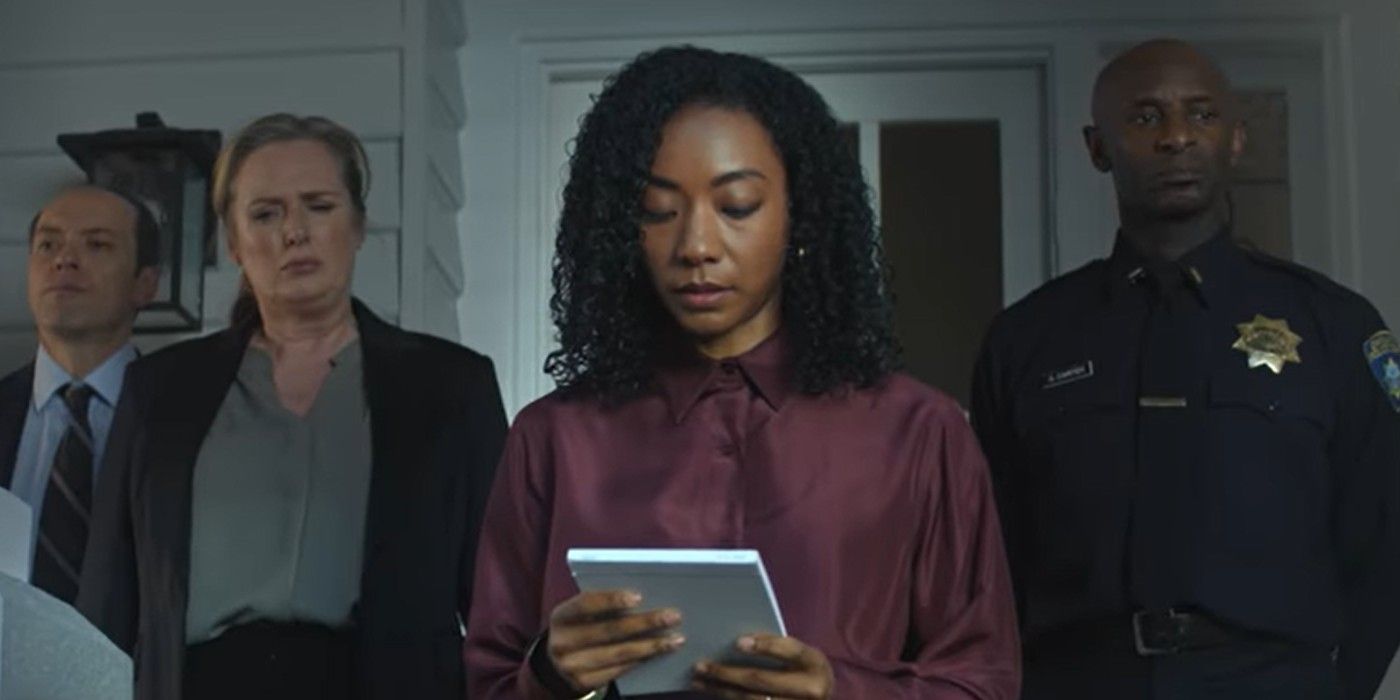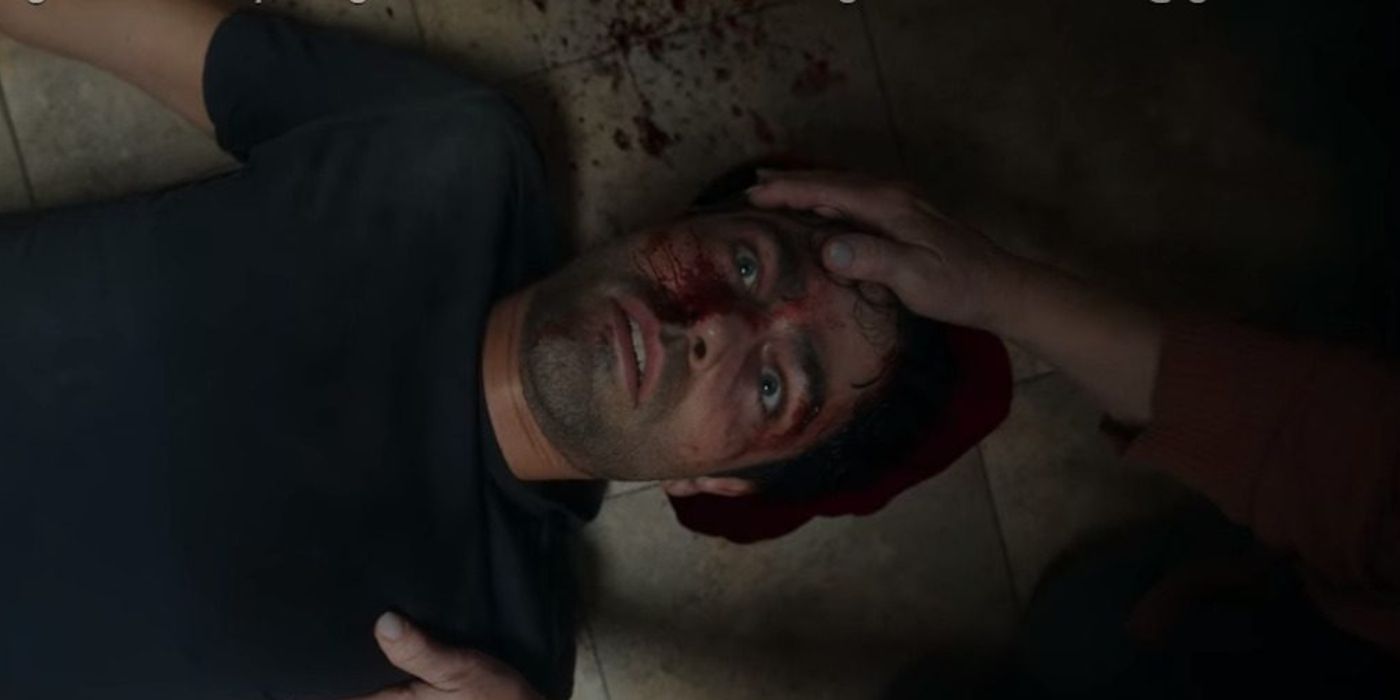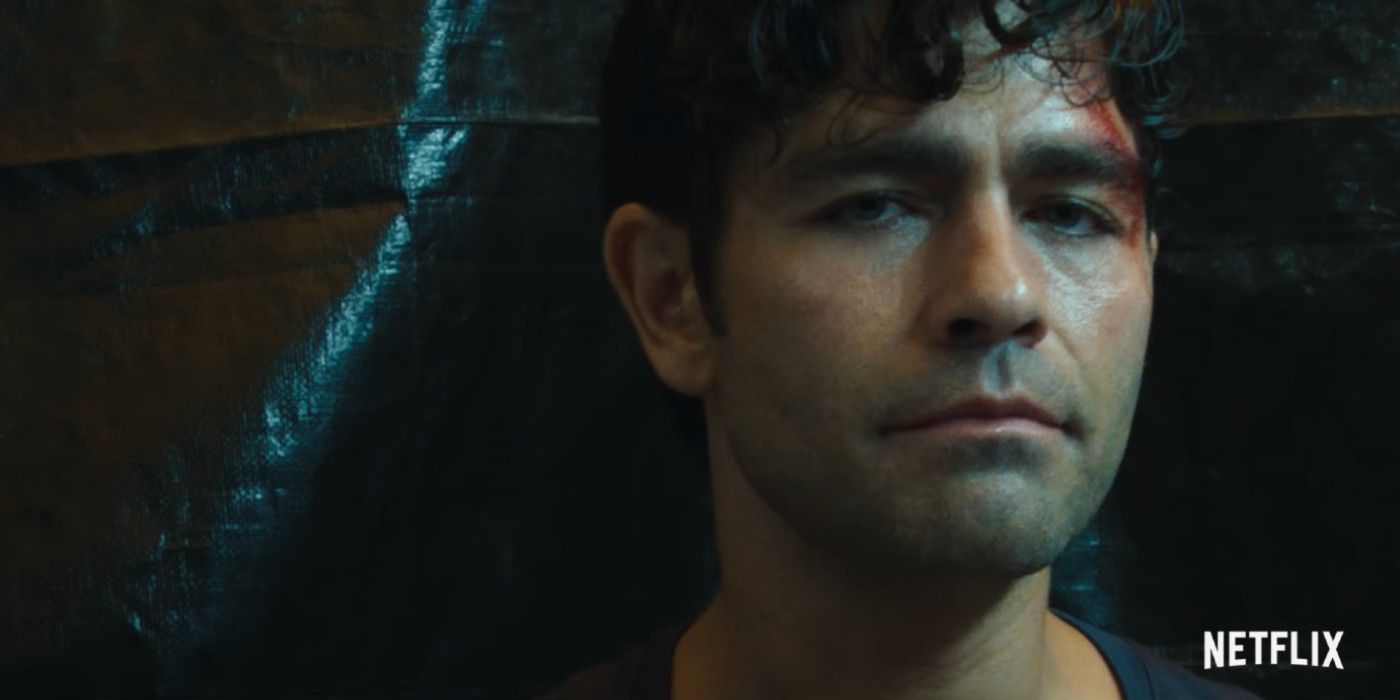WARNING: The following contains SPOILERS for Clickbait.
The Netflix thriller Clickbait has intrigued and confused viewers in equal measure, but how does the series end, and what is the meaning behind its big reveal? Domestic thrillers have been enjoying something of a cultural moment recently. This is thanks in large part to Netflix, which has started investing in potboilers filled with intrigue where seemingly normal suburban families are revealed to have dark pasts and all manner of shocking secrets.
However, whether it is the hidden secret identities of Deadly Illusions or the unexpected introduction of astral projection in the ludicrous ending of Behind Her Eyes, these series frequently come under fire for failing to stick the landing. That is exactly what happened when the Adrian Grenier-led series Clickbait arrived on Netflix, soon becoming a wildly popular trending topic on social media. The show’s twist ending divided audiences, with the creator even admitting that he expected backlash for the wild surprise.
Clickbait has a compelling, culturally relevant premise that all-but-guaranteed the series would go viral. Family man Nick Brewer is kidnapped and appears in a mysterious online video holding a sign saying “I abuse women” and “At five million views, I die.” By episode two, Nick’s promised fate occurs and he is found dead, but this is only the beginning of Clickbait’s twisty mystery. Like last year’s Netflix hit What Lies Below, this domestic thriller takes a wildly unpredictable — and for many viewers, hard to believe — turn in its closing scenes.
What Happens In Clickbait’s Ending
Nick’s kidnappers are revealed to be Simon, the brother of a woman Nick was seemingly having an online affair with, and Simon’s friend Daryl. However, when Simon discovers that Nick never messaged his sister and thus was not responsible for goading her into committing suicide, he allows Nick to escape and track down the real culprits. Nick immediately discerns that his receptionist Dawn is responsible (since she had unmonitored access to his phone, laptop, and all his accounts). In classic horror movie protagonist fashion, Nick opts not to return to his family or alert the police but instead marches directly to Dawn’s nearby house. There, he confronts Dawn and is promptly murdered by her husband, Ed. Ed and Dawn then spiral into a string of gradually worsening decisions, first hiding the body, then kidnapping Nick’s son when he works out that Dawn is the guilty party, and in Ed’s case, eventually being shot to death by the police for refusing to give up his gun.
Who Was Posing As Nick Brewer?
Nick’s lonely, unhinged receptionist, Dawn Gleed, was posing as Nick Brewer on numerous dating sites and apps. After Nick himself set up a profile on a dating app and began messaging a woman, he evidently lost interest in infidelity and his receptionist (who had synced his phone and laptop to her own) continued the messaging. Like the gormless husband of Deadly Illusions, Nick was apparently blissfully unaware of what his receptionist was up to and knew nothing of her secret life posing as him online. This hobby of Dawn’s soon spiraled into two undetected years of her pretending to be Nick on numerous dating sites and apps, catfishing women for attention and eventually abandoning them when they attempted to meet in person. However, one of these women took her own life when Dawn lost interest in her, prompting Simon and Darly to seek revenge on innocent, unaware Nick.
Why Did Dawn Frame Nick?
It is unclear why Dawn decided to act as Nick for two years across a variety of sites and apps, giving false hope to dozens of women in that time. The twist ending explains that she was lonely due to her childless relationship, but this (potentially offensive) answer could be viewed by many fans as an insufficient motive to prompt two years of identity theft capped by murder and kidnapping. Nonetheless, Clickbait makes it clear that Dawn did not resent Nick outright and instead just found his profile a useful conduit for her out-of-control catfishing addiction.
Why Did Ed Kill Nick?
The question of why Ed decided to kill Nick can only be ascribed to blind panic and the heat of the moment. In practical, rational terms, the choice to move from identity theft (a relatively serious crime, although less serious without Nick’s finances being involved) to murder and kidnapping makes no sense. However, neither does Cassie's death in Promising Young Woman since, in both cases, the villainous party panicked and did what he assumed would be best for him without considering the consequences. Killing Nick also showed Ed’s concern for his wife’s wellbeing, which was apparently absent for the two years she spent obsessively impersonating her boss on numerous dating sites every day.
How Did Dawn Pass As Nick?
Outside of her catfishing victims being extremely gullible and Nick being incredibly unobservant, there is not a lot of explanation for how Dawn managed to pass as her boss over the years. Why Nick never received notifications from dating apps despite Dawn using his accounts constantly (via her phone) is never made clear. Meanwhile, the question of why none of Dawn’s online conquests ever wanted to video chat despite daily phone calls from her (using a Scream-style voice changed to sound more like Nick) is also never addressed. The most reasonable conclusions fans can come to are that Nick never checked his notifications or emails before Dawn had a chance to delete evidence (relatively believable, as she was in charge of keeping his affairs in order), and Dawn likely dropped any catfishing victim who wanted to meet up in person lest she is caught out (again, believable but never stated in the series).
Clickbait’s Real Meaning
As the title implies, Clickbait’s ending hopes to offer an excoriating condemnation of contemporary online culture. The series is intended to be a Black Mirror-style cautionary tale that warns viewers against trusting anyone on the internet and wags a finger at the world’s addiction to technology. Of course, Clickbait’s limited understanding of how this technology works and the show's alternately unhinged and ultra-credulous cast of characters might blunt the effectiveness of this satire for some viewers, making the show more of a campy mystery with pretensions to social commentary than a damning indictment of real-life issues. In any case, Clickbait is certainly a superb advertisement for keeping one’s passwords protected.







